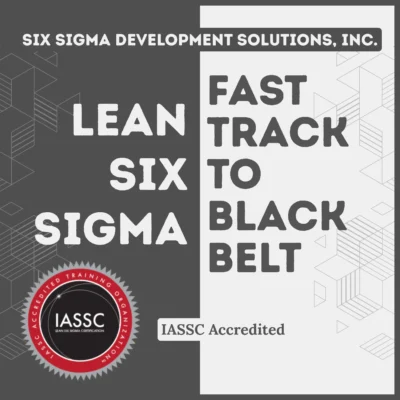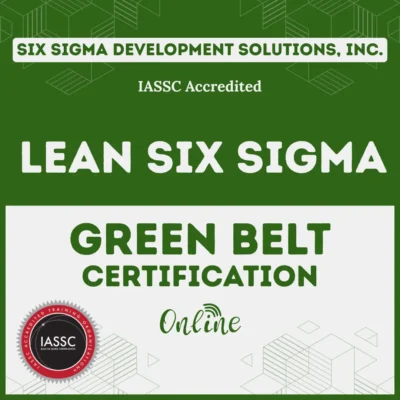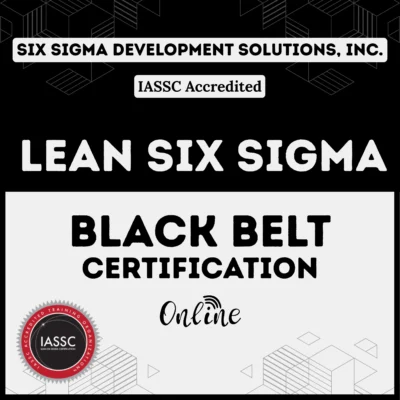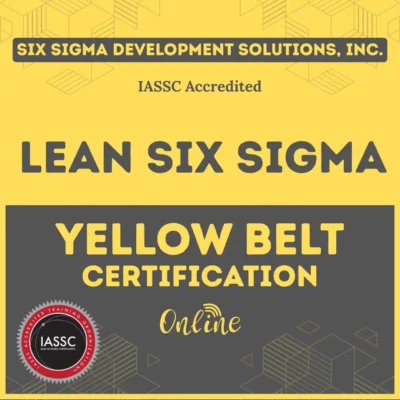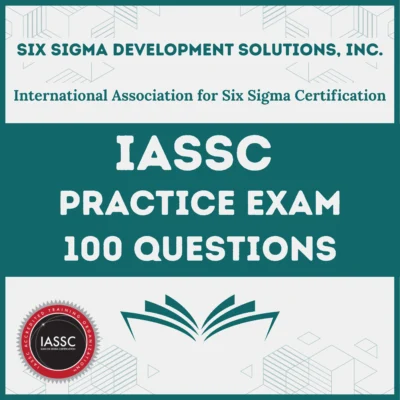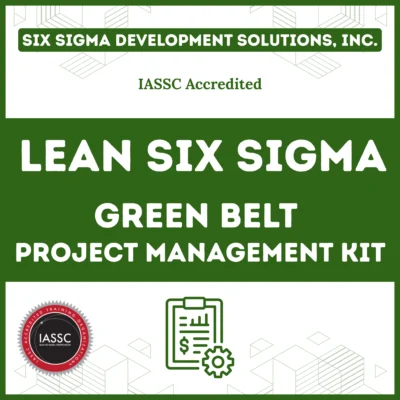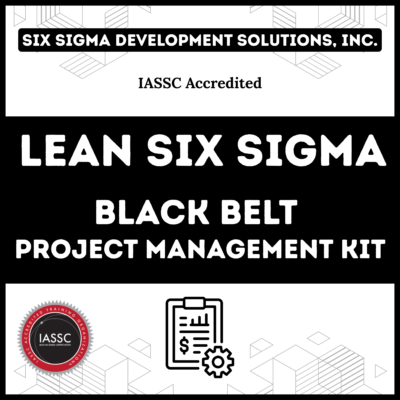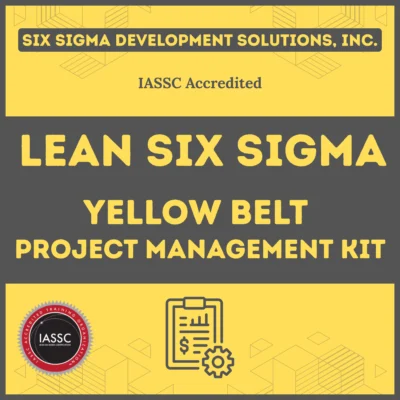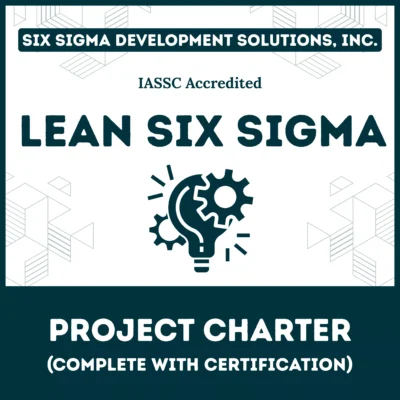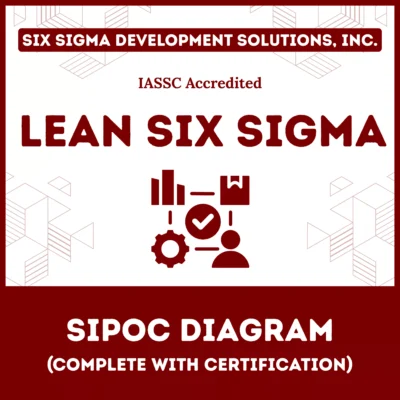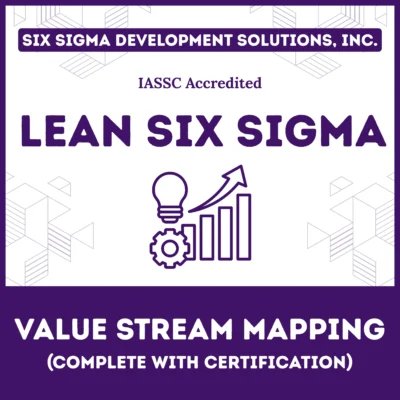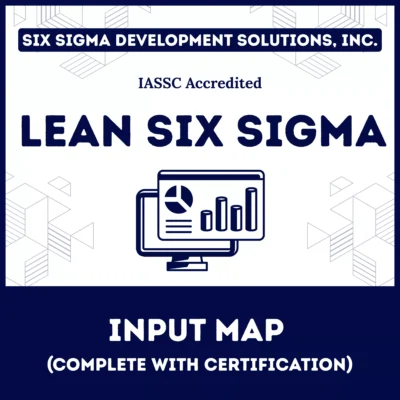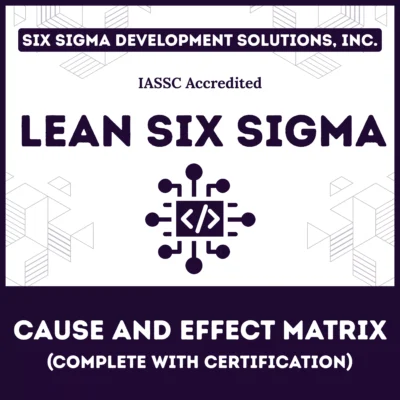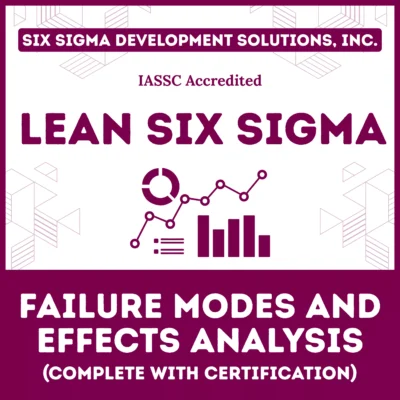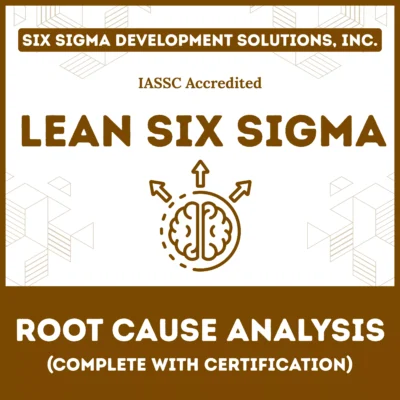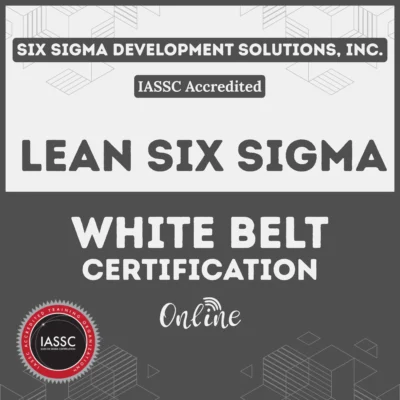Selecting the best lean manufacturing process improvement certification can dramatically transform your career trajectory and organizational impact. Today’s competitive manufacturing landscape demands professionals who understand continuous improvement methodologies and possess verified expertise in process optimization tools.
The right certification validates your knowledge of manufacturing process improvement while providing practical skills for implementing business process improvement techniques. Moreover, these credentials demonstrate your commitment to operational excellence and position you as a valuable asset in any organization focused on performance enhancement.
Table of contents
- Understanding Process Improvement in Manufacturing
- What is Process Improvement?
- Top 10 Best Lean Manufacturing Process Improvement Certifications
- 1. Six Sigma Black Belt Certification (ASQ/IASSC)
- 2. Lean Six Sigma Master Black Belt
- 3. ASQ Certified Manager of Quality/Organizational Excellence (CMQ/OE)
- 4. Lean Manufacturing Certification (SME/LEI)
- 5. APICS Supply Chain Operations Reference (SCOR) Certification
- 6. Project Management Professional (PMP) with Process Improvement Focus
- 7. Certified Lean Practitioner (CLP) – Association for Manufacturing Excellence
- 8. Business Process Management Professional (BPMP)
- 9. Certified Quality Engineer (CQE) – ASQ
- 10. Operational Excellence Certification – Shingo Institute
- Comparing Certification Providers and Programs
- Key Selection Criteria
- Process Improvement Tools and Techniques Covered
- Career Benefits and ROI Analysis of Lean Manufacturing Process Improvment Certification
- Implementation Strategies for Success
- Frequently Asked Questions
- Related Articles
Understanding Process Improvement in Manufacturing
Process improvement represents the systematic approach to identifying, analyzing, and enhancing existing business processes to achieve better outcomes. In manufacturing contexts, this involves optimizing production processes, reducing waste, improving quality, and increasing overall efficiency.
Public, Onsite, Virtual, and Online Six Sigma Certification Training!
- We are accredited by the IASSC.
- Live Public Training at 52 Sites.
- Live Virtual Training.
- Onsite Training (at your organization).
- Interactive Online (self-paced) training,
What is Process Improvement?
Process improvement encompasses various methodologies designed to eliminate inefficiencies and enhance value delivery. The primary goal of continuous improvement programs focuses on increasing operational effectiveness while reducing costs and improving customer satisfaction.
Effective process improvement methodologies combine data-driven analysis with systematic problem-solving approaches. These frameworks help organizations identify bottlenecks, eliminate non-value-added activities, and streamline workflows for maximum efficiency.
Core Elements of Manufacturing Process Management
Manufacturing process management involves coordinating all activities within the production process to ensure optimal performance. This includes:
- Workflow optimization: Streamlining material flow and reducing cycle times
- Quality control: Implementing systematic quality assurance measures
- Resource allocation: Efficiently utilizing human and material resources
- Performance monitoring: Tracking key metrics and identifying improvement opportunities
Top 10 Best Lean Manufacturing Process Improvement Certifications

1. Six Sigma Black Belt Certification (ASQ/IASSC)
Six Sigma Black Belt represents the gold standard in process improvement methodologies. This comprehensive certification demonstrates mastery of DMAIC methodology, statistical analysis, and project leadership capabilities.
Program Details:
- Duration: 6-12 months
- Cost: $5,000-$15,000
- Prerequisites: Green Belt or 3+ years process improvement experience
- Provider: ASQ, IASSC, or accredited training organizations
- Focus: Advanced statistical tools, project management, and team leadership
Key Benefits:
- Average salary increase: 20-25%
- Global recognition across all industries
- Leadership development opportunities
- High demand in manufacturing sectors
2. Lean Six Sigma Master Black Belt
Master Black Belt certification represents the pinnacle of process improvement expertise, combining strategic leadership with deep technical knowledge. This advanced credential prepares professionals for executive-level transformation roles.
Program Details:
- Duration: 12-24 months
- Cost: $10,000-$25,000
- Prerequisites: Black Belt + 5+ years leadership experience
- Focus: Organizational transformation, coaching, and strategic deployment
Career Impact:
- C-suite pathway opportunities
- Consulting and training roles
- Enterprise-wide improvement leadership
Check now: Lean Certification
3. ASQ Certified Manager of Quality/Organizational Excellence (CMQ/OE)
This comprehensive certification focuses on quality management systems and organizational excellence principles. It combines quality assurance with business process improvement methodologies.
Program Details:
- Duration: 6-9 months
- Cost: $2,500-$6,000
- Prerequisites: 10+ years quality/management experience
- Focus: Quality systems, leadership, and strategic planning
Unique Advantages:
- Executive-level recognition
- Comprehensive quality management coverage
- Strong ROI in quality-focused industries
4. Lean Manufacturing Certification (SME/LEI)
Society of Manufacturing Engineers (SME) and Lean Enterprise Institute (LEI) offer industry-leading lean manufacturing certifications focused on waste elimination and continuous flow.
Program Details:
- Duration: 3-8 months (varies by level)
- Cost: $2,000-$8,000
- Prerequisites: Manufacturing experience recommended
- Focus: Toyota Production System, value stream mapping, 5S
Industry Recognition:
- Preferred by automotive manufacturers
- Strong emphasis on shop floor application
- Practical implementation focus
5. APICS Supply Chain Operations Reference (SCOR) Certification
SCOR certification provides comprehensive supply chain optimization knowledge, essential for manufacturing process improvement in today’s interconnected business environment.
Program Details:
- Duration: 4-6 months
- Cost: $3,000-$7,000
- Prerequisites: Supply chain experience preferred
- Focus: Supply chain design, planning, and optimization
Strategic Value:
- End-to-end process optimization
- Growing demand in global manufacturing
- Integration with digital transformation initiatives
6. Project Management Professional (PMP) with Process Improvement Focus
PMP certification with process improvement specialization combines project management expertise with continuous improvement methodologies, creating versatile improvement leaders.
Program Details:
- Duration: 3-6 months
- Cost: $2,000-$5,000
- Prerequisites: 4,500-7,500 hours project management experience
- Focus: Project management, change management, improvement implementation
Career Flexibility:
- Applicable across all industries
- Strong salary premiums
- Leadership pathway opportunities
7. Certified Lean Practitioner (CLP) – Association for Manufacturing Excellence
This certification focuses specifically on lean manufacturing principles and their practical application in production environments.
Program Details:
- Duration: 3-5 months
- Cost: $2,500-$5,500
- Prerequisites: Manufacturing or engineering background
- Focus: Lean tools, waste elimination, employee engagement
Manufacturing Focus:
- Industry-specific applications
- Hands-on implementation emphasis
- Strong peer network
8. Business Process Management Professional (BPMP)
BPMP certification provides comprehensive business process improvement knowledge, combining process analysis with technology integration and change management.
Program Details:
- Duration: 4-7 months
- Cost: $3,500-$7,500
- Prerequisites: Business analysis or process improvement experience
- Focus: Process modeling, automation, digital transformation
Modern Relevance:
- Industry 4.0 alignment
- Digital process optimization
- Cross-functional application
Also Read: Lean Vs Six Sigma
9. Certified Quality Engineer (CQE) – ASQ
CQE certification combines quality engineering principles with process improvement methodologies, providing strong technical foundations for manufacturing excellence.
Program Details:
- Duration: 4-8 months
- Cost: $2,000-$4,500
- Prerequisites: Engineering degree or equivalent experience
- Focus: Quality systems, statistical methods, process control
Technical Strength:
- Engineering-focused approach
- Strong statistical foundation
- Manufacturing industry preference
10. Operational Excellence Certification – Shingo Institute
Shingo certification emphasizes cultural transformation and sustainable improvement, based on proven principles from world-class organizations.
Program Details:
- Duration: 6-12 months
- Cost: $4,000-$9,000
- Prerequisites: Leadership or improvement experience
- Focus: Cultural transformation, principle-based improvement, sustainability
Cultural Focus:
- Holistic transformation approach
- Leadership development emphasis
- Long-term sustainability focus
Comparing Certification Providers and Programs

Leading Certification Bodies
American Society for Quality (ASQ)
ASQ offers globally recognized Six Sigma and quality management certifications. Their programs emphasize statistical rigor and practical application in real-world scenarios.
International Association for Six Sigma Certification (IASSC)
IASSC provides vendor-neutral Six Sigma certifications with standardized curricula and examination processes. Their programs focus on universal Six Sigma principles applicable across industries.
Lean Enterprise Institute (LEI)
LEI offers comprehensive lean manufacturing certifications based on Toyota Production System principles. Their programs emphasize hands-on learning and practical implementation.
Project Management Institute (PMI)
PMI provides process improvement certifications that integrate project management principles with continuous improvement methodologies.
Key Selection Criteria

When evaluating certification programs, consider these critical factors:
Industry Recognition
Choose certifications widely recognized within your industry and target organizations. Research job postings and industry surveys to identify the most valued credentials.
Curriculum Quality
Examine course content, learning objectives, and practical applications. Look for programs that combine theoretical knowledge with hands-on experience.
Instructor Expertise
Evaluate instructor qualifications and industry experience. The best programs feature practitioners with extensive real-world implementation experience.
Support Resources
Consider available study materials, practice exams, and ongoing support. Comprehensive programs provide multiple learning modalities and continued professional development opportunities.
ROI Potential
Analyze certification costs against potential salary increases and career advancement opportunities. Calculate the payback period based on your specific career goals.
Process Improvement Tools and Techniques Covered

Statistical Process Control (SPC)
Statistical process control provides data-driven approaches to monitoring and controlling processes. These tools help identify variations and implement corrective actions before defects occur.
Key SPC techniques include:
- Control charts for monitoring process stability
- Process capacapability analysis for assessing performance
- Statistical sampling methods for quality control
Value Stream Mapping
Value stream mapping visualizes entire production processes to identify waste and improvement opportunities. This powerful tool helps organizations understand current state conditions and design future state processes.
The mapping process involves:
- Current state analysis and documentation
- Waste identification and categorization
- Future state design and implementation planning
Root Cause Analysis
Root cause analysis provides systematic approaches to identifying underlying problem causes. These methodologies prevent recurring issues and enable sustainable improvements.
Common root cause analysis tools include:
- Fishbone diagrams for cause categorization
- 5 Why analysis for problem drilling
- Failure mode and effects analysis (FMEA)
Continuous Improvement Techniques
Effective continuous improvement techniques engage employees at all levels in identifying and implementing improvements. These approaches create cultures of ongoing enhancement and innovation.
Popular techniques include:
- Suggestion systems for employee input
- Improvement teams for collaborative problem-solving
- Performance dashboards for progress tracking
Also Read: Lean Six Sigma Certification Belt Order
Career Benefits and ROI Analysis of Lean Manufacturing Process Improvment Certification
Salary Impact
Process improvement certifications typically generate significant salary increases across various industries. According to recent surveys, certified professionals earn 15-35% more than their non-certified counterparts.
Average Salary Increases by Certification Level:
- Six Sigma Black Belt: 20-25% increase
- Lean Six Sigma Master Black Belt: 25-35% increase
- ASQ CMQ/OE: 18-28% increase
- Lean Manufacturing Certification: 12-18% increase
- APICS SCOR: 15-22% increase
- PMP with Process Improvement: 20-30% increase
- CQE Certification: 12-20% increase
- BPMP Certification: 15-25% increase
- Shingo Operational Excellence: 18-26% increase
- Certified Lean Practitioner: 10-18% increase
Career Advancement Opportunities
Certified professionals often experience accelerated career progression and expanded leadership opportunities. Organizations increasingly seek leaders who can drive operational improvements and manage complex transformation initiatives.
Common career paths include:
- Process Improvement Manager
- Operations Excellence Director
- Continuous Improvement Consultant
- Manufacturing Engineering Manager
- Quality Assurance Director
Industry Demand
Manufacturing industries worldwide continue expanding their focus on operational excellence and competitive advantage. This trend creates strong demand for professionals with verified process improvement expertise.
High-demand sectors include:
- Automotive manufacturing
- Aerospace and defense
- Pharmaceutical and medical devices
- Food and beverage processing
- Electronics and technology
Implementation Strategies for Success
Pre-Certification Preparation
Successful certification requires thorough preparation and strategic planning. Consider these essential preparation steps:
Assess Current Knowledge
Evaluate your existing understanding of process improvement concepts and identify knowledge gaps. Use diagnostic assessments to focus your study efforts effectively.
Gather Relevant Experience
Seek opportunities to participate in improvement projects within your current organization. Hands-on experience enhances learning and provides practical examples for certification requirements.
Build Support Networks
Connect with certified professionals and study groups. Peer networks provide valuable insights, motivation, and ongoing support throughout the certification journey.
Study Methodologies
Effective study approaches combine multiple learning modalities for maximum retention and application:
Structured Learning Plans
Develop comprehensive study schedules that balance theoretical knowledge with practical application. Allocate sufficient time for each topic while maintaining consistent progress.
Practice Projects
Apply learned concepts to real workplace challenges. Document improvement projects to demonstrate practical knowledge and build professional portfolios.
Mock Examinations
Complete practice tests to assess readiness and identify areas requiring additional study. Regular testing builds confidence and improves examination performance.
Post-Certification Development
Certification represents the beginning of your continuous learning journey. Maintain and enhance your credentials through ongoing professional development:
Continuing Education Participate in workshops, conferences, and advanced training programs. Stay current with evolving methodologies and industry best practices.
Professional Networks Join professional associations and local chapters. Active networking creates opportunities for knowledge sharing and career advancement.
Mentoring Opportunities Mentor junior professionals and share your expertise. Teaching others reinforces your knowledge while contributing to professional community development.
Common Challenges and Solutions
Time Management
Balancing certification studies with work and personal commitments requires effective time management strategies:
- Create realistic study schedules with built-in flexibility
- Utilize commute time and lunch breaks for review sessions
- Set specific learning goals for each study period
- Use mobile learning apps for convenient access
Resource Constraints
Limited budgets shouldn’t prevent professional development. Consider these cost-effective approaches:
- Employer sponsorship and tuition reimbursement programs
- Online certification programs with flexible payment options
- Group study arrangements to share resources and costs
- Free or low-cost preparation materials and practice tests
Application Challenges
Translating theoretical knowledge into practical results requires systematic approaches:
- Start with small-scale improvement projects
- Document lessons learned and best practices
- Seek guidance from experienced mentors
- Focus on measurable outcomes and success metrics
Frequently Asked Questions
Which process improvement certification offers the best ROI for manufacturing professionals?
Six Sigma Black Belt certification typically provides the highest ROI for manufacturing professionals, with average salary increases of 20-25% and strong industry demand. However, the best choice depends on your specific career goals, industry focus, and current experience level.
Are online process improvement certifications as valuable as in-person programs?
Online certifications from reputable providers carry equal weight with employers, especially when they include practical project requirements. Many professionals prefer online programs for their flexibility and cost-effectiveness, though in-person programs may offer enhanced networking opportunities.
What prerequisites do I need for Six Sigma Green Belt certification?
Most Six Sigma Green Belt programs require basic statistical knowledge and some process improvement experience, though specific prerequisites vary by provider. Yellow Belt certification or equivalent workplace experience typically suffices for admission to Green Belt programs.
How do I maintain my process improvement certification once earned?
Certification maintenance typically requires continuing education credits, professional development activities, and periodic recertification. Requirements vary by certification body, but most programs require 15-30 continuing education units every three years to maintain active status.

About Six Sigma Development Solutions, Inc.
Six Sigma Development Solutions, Inc. offers onsite, public, and virtual Lean Six Sigma certification training. We are an Accredited Training Organization by the IASSC (International Association of Six Sigma Certification). We offer Lean Six Sigma Green Belt, Black Belt, and Yellow Belt, as well as LEAN certifications.
Book a Call and Let us know how we can help meet your training needs.





